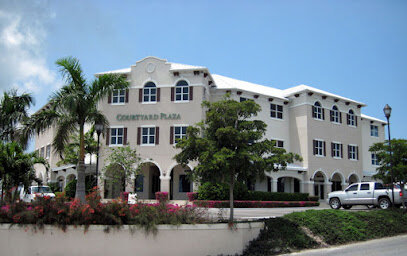Best Trusts Lawyers in Turks and Caicos Islands
Share your needs with us, get contacted by law firms.
Free. Takes 2 min.
Or refine your search by selecting a city:
List of the best lawyers in Turks and Caicos Islands
About Trusts Law in Turks and Caicos Islands:
Trusts in the Turks and Caicos Islands are governed by the Trusts Ordinance, which provides a comprehensive legal framework for the creation and management of trusts. A trust is a legal arrangement where one person (the trustee) holds assets on behalf of another person (the beneficiary). Trusts in the Turks and Caicos Islands are commonly used for estate planning, asset protection, and other wealth management purposes.
Why You May Need a Lawyer:
You may need a lawyer to help you create a trust, review an existing trust document, resolve disputes related to a trust, or ensure compliance with local laws and regulations. Trusts can be complex legal instruments, and an experienced lawyer can help you navigate the legal requirements and protect your interests.
Local Laws Overview:
Some key aspects of local laws that are particularly relevant to trusts in the Turks and Caicos Islands include the requirement for trusts to have a written trust deed, the duty of trustees to act in the best interests of the beneficiaries, and the availability of the court to resolve trust disputes. The jurisdiction is also known for its robust trust law regime and trusted financial services sector.
Frequently Asked Questions:
1. What is a trust?
A trust is a legal arrangement where one person, the trustee, holds assets on behalf of another person, the beneficiary.
2. How do I create a trust in the Turks and Caicos Islands?
To create a trust, you will need to establish a written trust deed and transfer assets to the trustee for the benefit of the beneficiaries.
3. What are the duties of a trustee?
A trustee has a duty to act in the best interests of the beneficiaries, manage the trust assets prudently, and comply with the terms of the trust deed.
4. Can a trust be challenged in court?
Yes, a trust can be challenged in court if there are allegations of fraud, breach of trust, or other misconduct by the trustee.
5. How can a lawyer help me with a trust?
A lawyer can help you create a trust, review an existing trust document, resolve disputes related to a trust, or ensure compliance with local laws and regulations.
6. Are there different types of trusts available in the Turks and Caicos Islands?
Yes, there are different types of trusts, including revocable trusts, irrevocable trusts, charitable trusts, and discretionary trusts.
7. What are the tax implications of a trust in the Turks and Caicos Islands?
The Turks and Caicos Islands do not levy income, estate, or inheritance taxes, making it an attractive jurisdiction for trust planning purposes.
8. Can a trust be used for asset protection?
Yes, trusts can be used for asset protection purposes to shield assets from creditors, lawsuits, and other claims.
9. How do I choose a trustee for my trust?
It is important to choose a trustee who is trustworthy, competent, and willing to fulfill their fiduciary duties diligently.
10. How do I resolve a trust dispute?
A trust dispute can be resolved through negotiation, mediation, or litigation in court, depending on the nature and complexity of the dispute.
Additional Resources:
For more information on trusts in the Turks and Caicos Islands, you can contact the Financial Services Commission or seek advice from a qualified trust lawyer.
Next Steps:
If you require legal assistance with trusts in the Turks and Caicos Islands, it is advisable to consult with a trust lawyer who can provide expert guidance and representation to protect your interests and ensure compliance with local laws.
Lawzana helps you find the best lawyers and law firms in Turks and Caicos Islands through a curated and pre-screened list of qualified legal professionals. Our platform offers rankings and detailed profiles of attorneys and law firms, allowing you to compare based on practice areas, including Trusts, experience, and client feedback.
Each profile includes a description of the firm's areas of practice, client reviews, team members and partners, year of establishment, spoken languages, office locations, contact information, social media presence, and any published articles or resources. Most firms on our platform speak English and are experienced in both local and international legal matters.
Get a quote from top-rated law firms in Turks and Caicos Islands — quickly, securely, and without unnecessary hassle.
Disclaimer:
The information provided on this page is for general informational purposes only and does not constitute legal advice. While we strive to ensure the accuracy and relevance of the content, legal information may change over time, and interpretations of the law can vary. You should always consult with a qualified legal professional for advice specific to your situation.
We disclaim all liability for actions taken or not taken based on the content of this page. If you believe any information is incorrect or outdated, please contact us, and we will review and update it where appropriate.
Browse trusts law firms by city in Turks and Caicos Islands
Refine your search by selecting a city.









